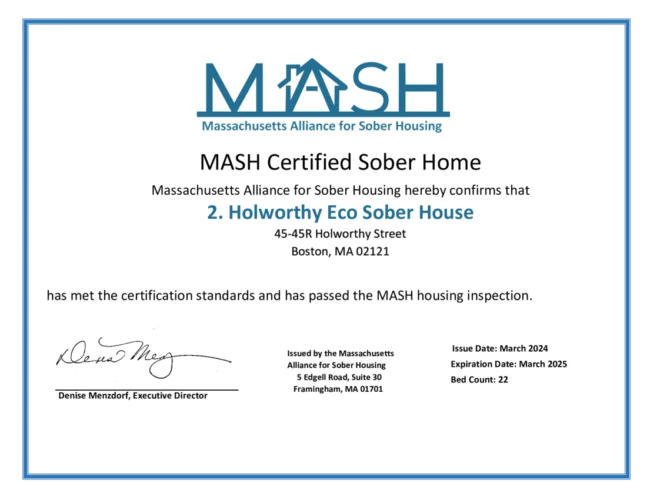
If you have to discuss important topics with someone who experiences rageaholism, timing might make a difference in the response you get. While they’re exploring what might be at the root of their rage, you can help them maintain calm by eliminating things you know might light an emotional fuse. Trying to identify what’s underneath their anger can help you calmly express that you’re listening and you understand. The more calm and rational you can remain, the better the chances are that their anger will simmer down. You might feel as though you’re walking on eggshells, or that you can’t predict what response you’ll get, even when you do the “right” thing.
Oar Health Member Stories: A Family History of AUD
Alcohol is linked to anger and aggression more than any other psychotropic substance.7 While not all drinkers become angry, someone who is predisposed to anger can become more aggressive when they drink alcohol. Many people who drink are never violent and even those who https://ecosoberhouse.com/ do become aggressive won’t do so all the time. But there is strong evidence of a link between alcohol and aggression. If you have intermittent explosive disorder, prevention is likely beyond your control unless you get treatment from a mental health professional.
If You Live with an Angry Drunk, What Can You Do?
Seeking professional help is crucial to address the underlying issues and facilitate the journey to recovery and healthier coping mechanisms. The best way to prevent and/or cope with the physical and mental symptoms of dry drunk syndrome is to stay steadfast in your recovery. Drinking may also be a method to self-medicate negative emotions, including anger. Alcohol is a depressant substance, meaning that it helps to suppress some of the “fight-or-flight” stress reactions that anger can induce.
- They provide a platform for individuals to learn about the risks and consequences of alcohol on emotions, such as anger and aggression.
- By seeking recovery for problems with alcohol and anger, you can work toward a more positive life.
- There’s no better way to put it — properly addressing alcohol-fueled aggression is crucial for your well-being and relationships.
- Now that we know what alcoholic rage syndrome is, can we do anything about it?
The Connection Between Alcohol and Anger

According to the Substance Abuse and Mental Health Services Administration (SAMHSA), nearly 8 million adults in the United States struggled with both a mental health disorder and addiction in 2014. When a person struggles with both alcohol addiction and anger management problems, the issues exacerbate each other. Building a reliable support system can play a crucial role in coping with alcoholic rage syndrome. Connecting with people who can understand your struggles and provide emotional support, such as friends, family, or even mental health professionals, can help alleviate stress and promote positive mental health. Joining support groups for individuals dealing with similar challenges can also contribute to your recovery journey by providing a safe space to share experiences and learn new coping strategies. People can be more prone to alcoholic rage based on genetics, life stressors, antisocial personality disorder, or personality traits such as underlying irritability.

Identify the root of the anger
They found that people with HTR2B Q20 tended to be more impulsive and aggressive under the influence of alcohol. They were more likely than those without the variation to have a history of outbursts and fights while drinking, as well as to have been arrested for driving under the influence. The tendency to avoid looking ahead alcoholic rage syndrome and assessing consequences for one’s actions is a risk factor for aggressive behavior while drinking. That may sound obvious, and it’s a theory backed by a small, interesting 2012 study from Ohio State University (9). In summary, heavy drinking or chronic drinking alters brain chemistry in the short and long term.
Ways of Dealing With an Angry Alcoholic
The study included 67 undergraduate men who were currently dating someone. Anger is an intense emotion you feel when something has gone wrong or someone has wronged you. Aggression refers to a range of behaviors that can result in both physical and psychological harm to yourself, others, or objects in the environment. Research has shown that thought suppression may contribute to alcohol-related aggression. One study supporting this finding enlisted 245 men with a history of heavy episodic alcohol use (Berke et al., 2020).
- Unfortunately for me, my situation involved dealing with a very angry, verbally and physically abusive alcoholic.
- In addition, alcohol abuse and addiction can result in poor anger management skills.
- In your first appointment with a drug treatment service, the staff will inquire about your drug use, work, family, and housing situations.
- Anger management issues may be rooted in a specific mental health disorder in some cases.
- When you drink alcohol, those inhibitions are lifted, and if you’re feeling angry, you’re more likely to express it and do so in an exaggerated way.
Seeking treatment for rageaholic behaviors can be critical for learning how to cope and maintain relationships. Suggesting counseling or therapy may not always be well received in an angry moment, so consider waiting until a calm period to discuss possible treatment options. It stands to reason that if your loved one can funnel his or her energy toward healthy productive objectives, they will be successful in leaving the negative disposition of “dry drunk” by the wayside.
Understanding the Link Between Anger and Alcoholism
These issues can then lead to more anger and further difficulty controlling emotions and outbursts. It can be harder for someone under the influence of alcohol to notice typical warning signs that emotions, especially anger, may be getting out of control. Some of the biological factors that contribute to alcoholism may also play a role in increasing the risk of intimate partner violence. Such factors including head injury, neurochemistry, physiological reactivity, metabolism, and genetics. Alcohol impairs cognitive function, which means it is more difficult to problem-solve, control anger, and make good decisions when drinking. Decreased cognitive function also means it’s more likely for you to misread a situation and overreact.


It’s equally important that psychotherapists highlight this interaction both with clients who consume alcohol and those in relationships with them. Additionally, this information should also be taught in schools to expand their understanding and hopefully reduce the prevalence of alcohol-related aggression. Luckily, that clarity can be beneficial, because it means that you have a chance to put your foot down and stop what you’re doing. If you become a crazy drunk person when you’re drinking, and you drink often, it’s probably safe to say you’re an alcoholic.